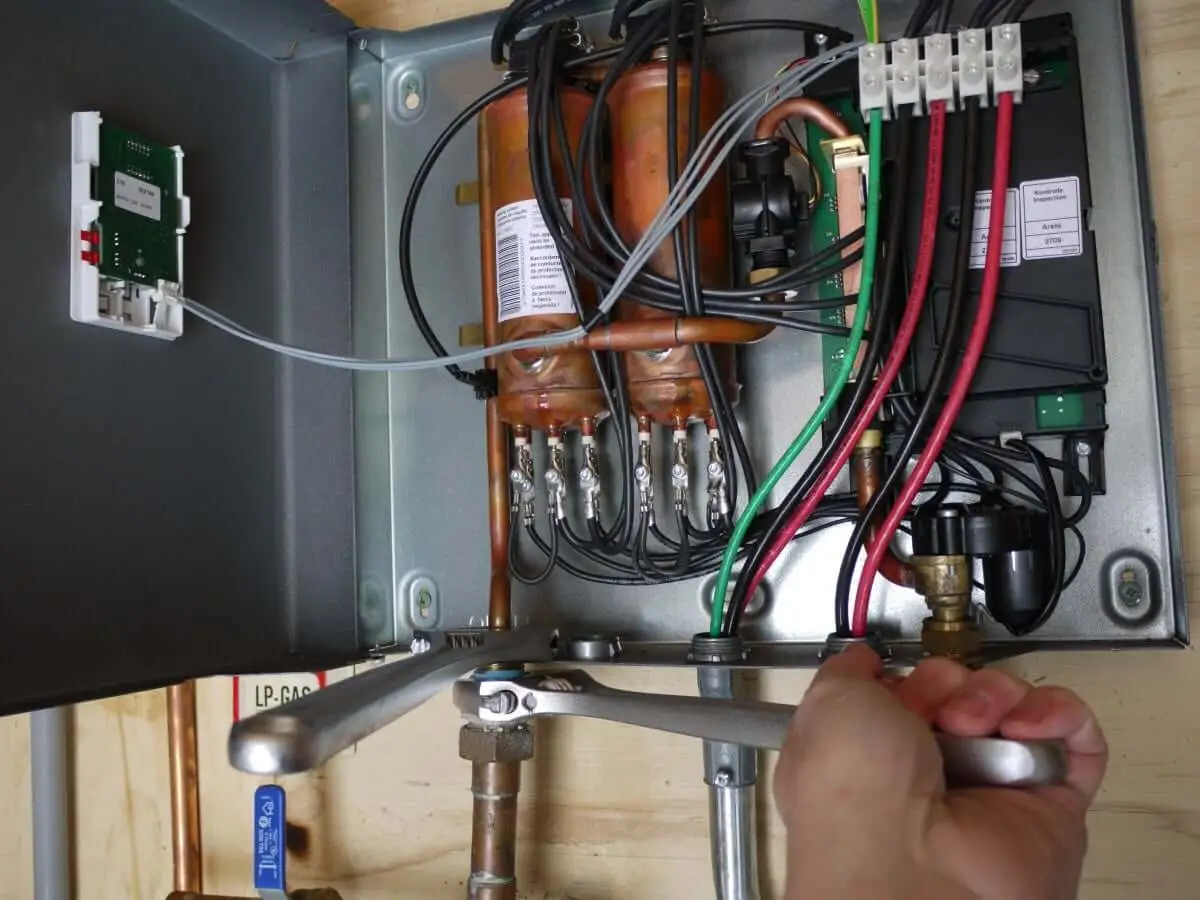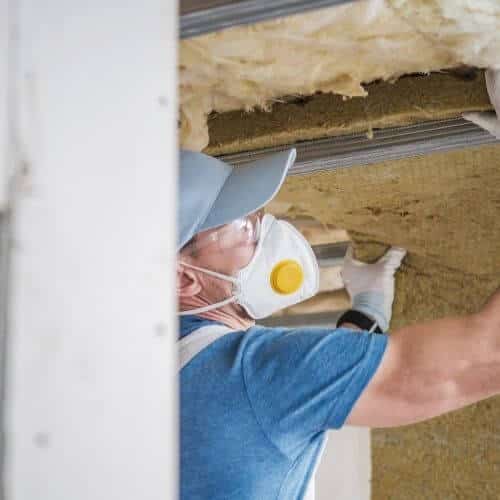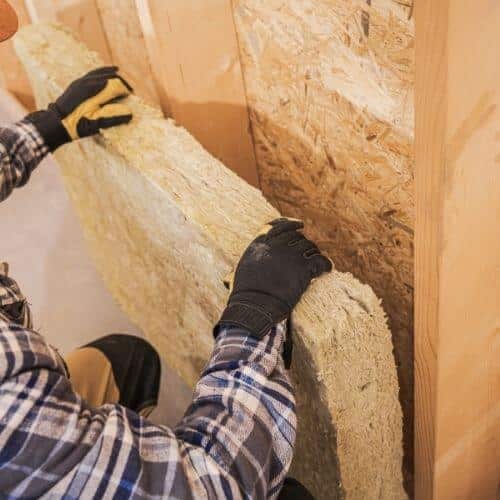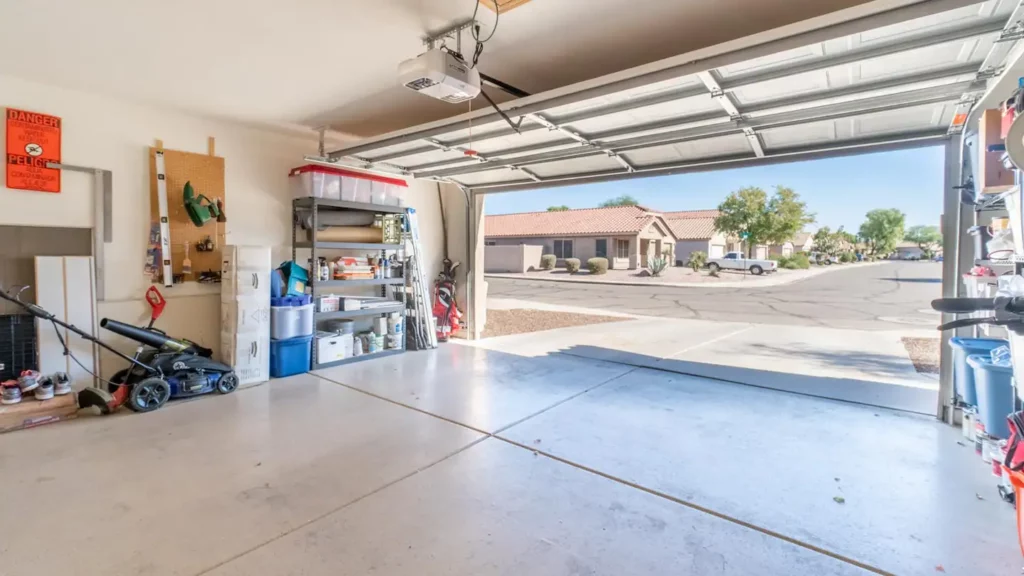Is it normal to install a tankless water heater in garage?
Tankless water heaters have gained widespread popularity due to their exceptional energy efficiency and space-saving benefits. They also provide an unending supply of hot water.
However, when it comes to installing a tankless water heater in the garage, there are several factors to consider.
This article will explore the feasibility of installing a tankless water heater in the garage. We will also discuss the importance of permits and highlight the safety considerations to ensure a successful and safe installation. Finally, we will explore the overall practicality of having a tankless water heater in the garage.
Installing a Tankless Water Heater in the Garage

The feasibility of installing a tankless water heater in the garage depends on various factors. The issues include the climate, insulation, and available space.
Garages are sometimes exposed to extreme temperatures, especially in regions with cold winters or hot summers [1].
These temperature fluctuations might affect the performance and efficiency of the tankless water heaters installed in the garage. Proper insulation is therefore essential to maintain optimal operating conditions for the unit. It ensures efficient heating and prevents energy loss.
Tankless water heaters are generally smaller than traditional tank heaters. They can be mounted on the wall, which can save valuable floor space.
Nevertheless, ensuring sufficient clearance around the unit for proper ventilation and maintenance access is essential.
Permit Requirements
Before installing a tankless water heater in the garage, you need to research the existing local building codes and permit requirements. Building codes and permit regulations vary across states [2].
Consulting a licensed professional plumber will provide valuable guidance on permit requirements for installing a tankless water heater in the garage.
Furthermore, permits ensure that the installation meets safety standards and is performed by qualified professionals. Failure to follow these requirements may result in heavy fines or removal of the installed unit.
DIY Installation vs. Professional Assistance
Installing a tankless water heater in the garage is a complex task. It requires knowledge of plumbing, electrical connections, and venting requirements. Sometimes, experienced homeowners may opt for a do-it-yourself (DIY) installation of a tankless water heater in their garage.
However, it is essential to approach DIY projects cautiously, especially when dealing with gas appliances. Any improper installation can lead to safety hazards, inefficient operation, or even potential damage to the unit [3].
While homeowners may have the skills to undertake the installation themselves, hiring a professional plumber is essential. This will ensure that the tankless water heater is installed correctly. Professionals possess the expertise to handle the intricacies of the whole installation process.
They are well-equipped to ensure proper connections, venting, and compliance with safety standards. Moreover, they provide valuable advice on selecting the suitable unit and accessories for your needs [4].
This will guarantee proper sizing and compatibility with your home’s gas or electrical supply systems.
Safety Considerations
One of the primary concerns when installing a tankless water heater in the garage is safety. Garages usually contain flammable materials, such as gasoline or paint. Placing a tankless water heater next to these materials can pose a fire risk.
Maintaining a safe distance between the water heater and any potentially flammable substances is essential. You must therefore adhere to manufacturer recommendations and local authority fire codes [5].
Proper ventilation is critical when installing a tankless water heater in the garage. Tankless heater units produce exhaust gases that need to be safely vented out. Insufficient ventilation will result in the accumulation of harmful gases, such as carbon monoxide, which might pose a serious health hazard.
Following the manufacturer’s guidelines for venting requirements, such as the right type and size of vent pipes needed, is important. Additionally, consider installing carbon monoxide detectors in the garage. The sensors provide an additional level of protection and early detection in the event of a gas leak or build-up.
The garage may be susceptible to freezing conditions in regions with frigid temperatures. Tankless water heaters are usually damaged if exposed to freezing temperatures without appropriate protection.
Some tankless water heaters have built-in freeze protection features. Others require additional insulation or the installation of freeze-protection devices.
You also need to consider alternative locations for your tankless heater, such as indoor utility rooms. Be sure to consult the manufacturer’s guidelines to determine the appropriate measures for freeze protection based on your specific model and location.
If you choose to install an electric tankless water heater, ensure that the electrical supply in your garage is sufficient to handle the unit’s power requirements. Make sure that you have a dedicated circuit with the appropriate amperage and wiring to power the water heater.
Consult a qualified electrician to ensure adherence to local electrical codes and safe installation procedures.
Practicality for Tankless Water Heater Installation in the Garage
Before installing a tankless water heater in the garage, you need to take several factors into consideration. One consideration is the availability of space. Garages often have limited space, and installing a tankless unit may require careful planning. You will need to plan for adequate ventilation, maintenance access, and compliance with clearance requirements specified by the manufacturer and local authority codes.
Another factor to consider is the demand for hot water. Tankless water heaters are meant to supply hot water on demand without the necessity of a storage tank. Choosing a tankless unit that can meet the household’s hot water needs is essential. If the demand exceeds the unit’s capacity, there may be insufficient hot water supply.
The location of the garage with respect to the water supply line is another factor to consider. Lengthy pipe runs can lead to heat loss and increased wait times for hot water at the fixtures [6].
Consult with a plumber or contractor to help determine the practicality of installing a tankless water heater in a specific garage setup.
Related: How To Run Plumbing To Detached Garage
Conclusion
Installing a tankless water heater in the garage offers potential benefits such as energy efficiency, space-saving, and endless hot water supply. However, safety should be a top priority, as well as proper ventilation and adherence to local building codes and permit requirements.
While some homeowners may undertake a DIY installation, hiring a professional plumber for a seamless and proper installation is crucial. With all factors in place, homeowners can enjoy the benefits of a tankless water heater while minimizing potential risks associated with this facility. Remember to always have a good maintenance schedule to ensure the smooth operation of your tankless water heater.

Michael Davis is a heating & plumbing expert who currently works as independent contractor in SC. He also writes for Plumbertip.
For almost 10 years he worked on various plumbing tasks across South Carolina.


